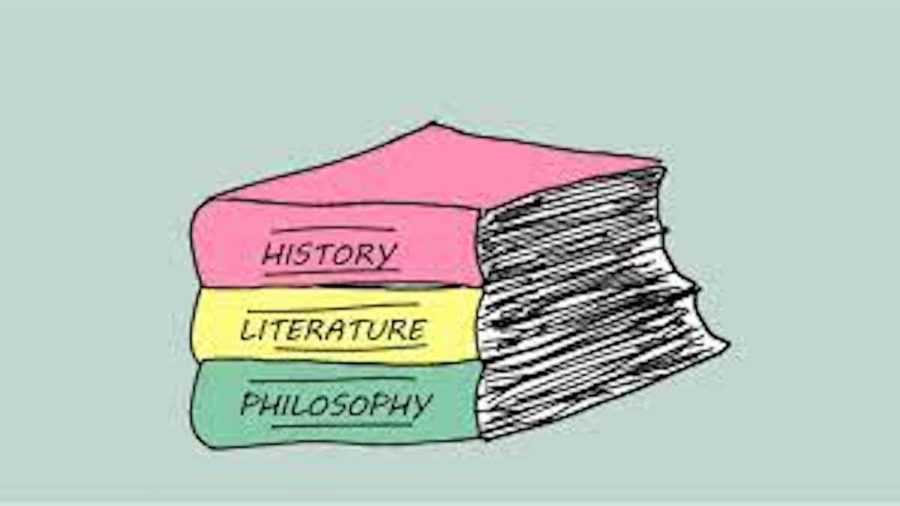A defense for the humanities
The most regretted majors and why they deserve better
December 8, 2022
I am a double major in journalism and political science. So it was with great apprehension that I clicked on the article that came across my browser. Just reading the title, I already knew what it would say and I knew how it would make me feel. I opened it anyway.
Maybe I was hoping I would be wrong, that my preconceptions would be disproved. Or maybe I wanted to read it because I already knew how it would make me feel. Thus is the nature of clickbait, because no matter the reason, I opened it.
It was an article called The top 10 most-regretted majors from CNBC — and sitting at the top was none other than journalism.
The survey asked college graduates if they would choose a different major if they had a second chance. 87% of grads surveyed said they regretted their journalism degree. Sociology, liberal arts, communication and education followed.
Political Science, my second major, ranked in eighth place with 56%.
Pushing away some (but not all) of the immediate urge to regret every life decision from the past three years, I tried to look at the list as a whole.
Humanities and social sciences deserve more respect.
The humanities provide a very important function in society and bring us closer to understanding the most important and most intricately complex aspect of the world — people.
What good is the most advanced engineering, or the most efficient technology if we don’t understand the humanity behind our society? Social sciences humanize an increasingly dehumanizing environment.
I am not saying that humanities are more important than STEM — in fact, I would say that both the STEM and medical fields are significantly more important than any social science field. But I do think we need to evaluate the humanities in a different way.
In social sciences, the results are less tangible. Results in the medical field can literally be measured by the number of lives saved. Engineers can measure their results with tangible and concrete inventions and constructions.
Humanities, however, produce more abstract results, which are still important but difficult to evaluate.
Quality journalism spreads information and promotes a civically engaged society. It also checks the government by informing voters of corruption and keeping officials accountable to the public they serve.
That is difficult to measure. But it is still very important.
So how can almost 90% of people with a degree that serves an important role in a democracy regret their major?
With a statistic that is widespread like this one, the reasons extend beyond individual feelings and responses. When 87% of journalists say the same thing, look at the systems that connect them.
Journalists are underpaid and under-supported while they are supposed to serve a critical role in society.
Our society needs to do better in supporting journalism and what it can do to help strengthen democracy.
In turn, journalists need to spread true and credible information in a completely unbiased way that benefits our society.
The humanities are important. They contribute to society in ways that are not possible through science or analytics and they deserve to be supported and respected so that if given a second chance, graduates would have no regrets.
Mohr can be reached at [email protected].











